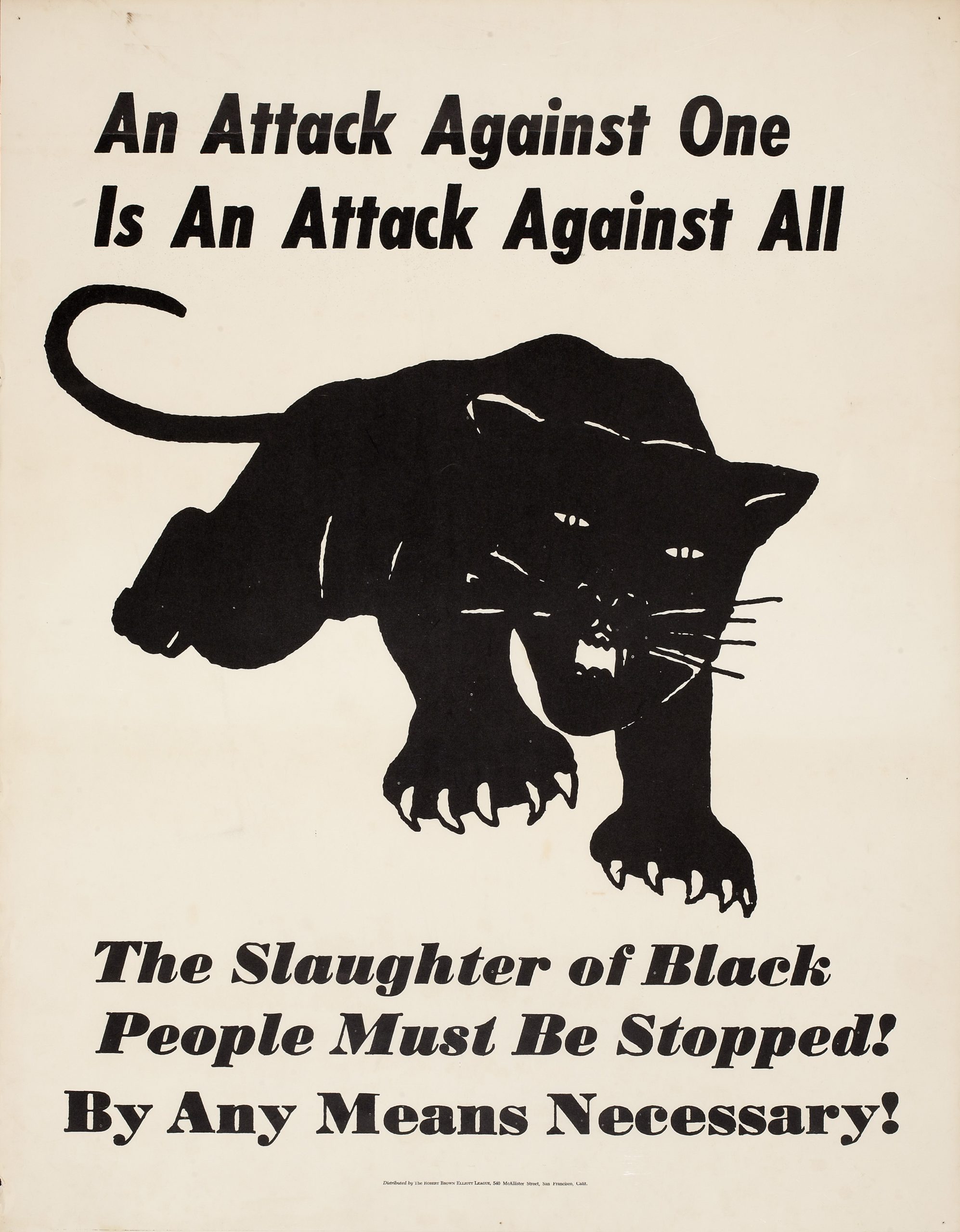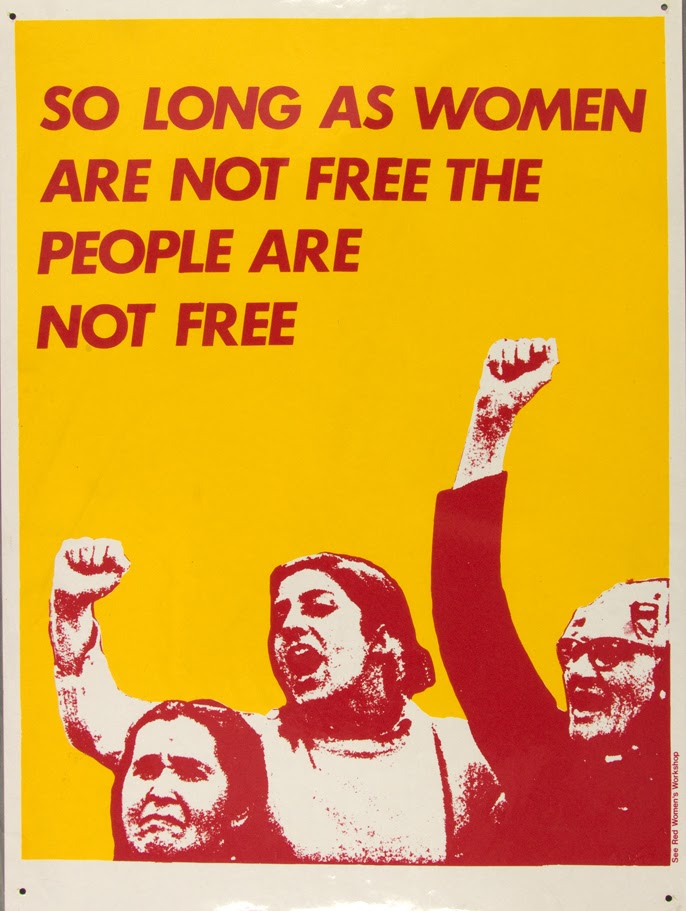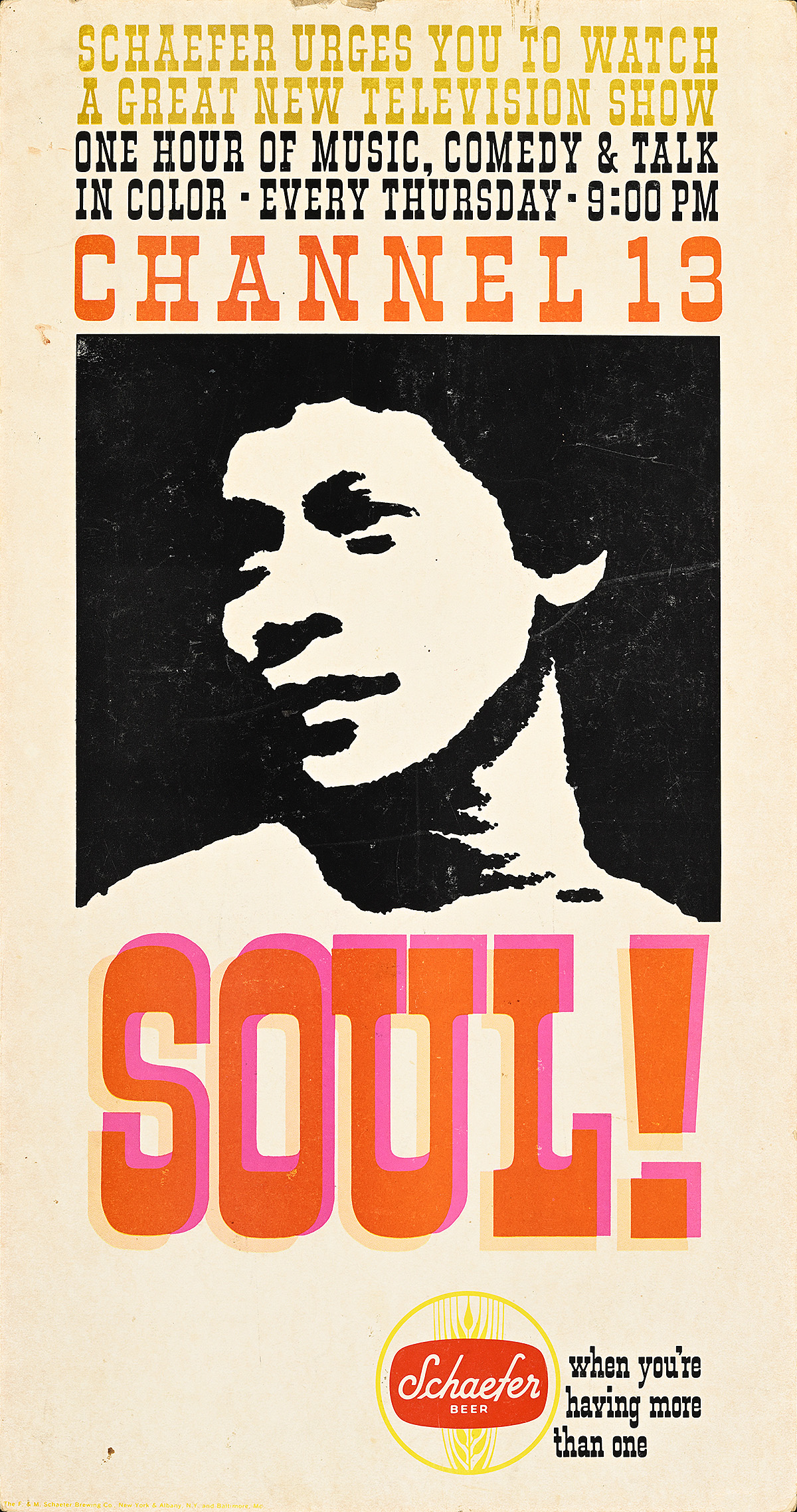
Lights, Camera, Soul!
.During the late 1960s, the reemergence of television variety shows of a kind that had been popular during the previous decade intersected with the burgeoning civil rights, Black power, second-wave feminism, and gay liberation movements. On Thursday, September 12, 1968, WNDT, a New York public television station, responded to a growing interest in themes that captured the Black experience through dance, music, poetry, and conversation with a special broadcast.
Soul! was an hour-long television program that featured Black performers as well as scholars who discussed politics and culture. The variety show was positioned as a celebration of the Black community but also as a platform for specific issues. This was established by its first cohosts, Loretta Long and Alvin Francis Pouissant. Long was a teacher and actress who had received her PhD in Urban Education from the University of Massachusetts, Amherst, while Pouissant was a Harvard University professor, psychiatrist, author, and consultant who emphasized the importance of mental health within the Black community. These two offered well-rounded perspectives on complex topics and were representative of Black leaders who used the media to broadly reshape American culture.

Soul! (c. 1968), Designer Unknown
Poster House Permanent Collection
Pouissant was eventually replaced as a cohost by Dr. Harold Haizlip before his cousin Ellis Haizlip, the show’s creator and executive producer, assumed the role. Haizlip was experienced in theater production and had a long-standing appreciation for the performing arts and for the Black Arts Movement of this era. Furthermore, as an openly gay Black man, he embodied the main aim of the program to create a space where the lives of Black people were both represented and elevated.
This placard announcing a beer sponsorship of Soul! features the stylized face of Novella Nelson, one of the first singers to appear on the program. The image was taken from her first performance on television and her voice captivated viewers. Nelson’s face was also shown in a series of vivid colors in the introductory sequence to the show. The set design was equally vibrant and reflected the excitement of the performers who owned the stage every Thursday at 9pm.
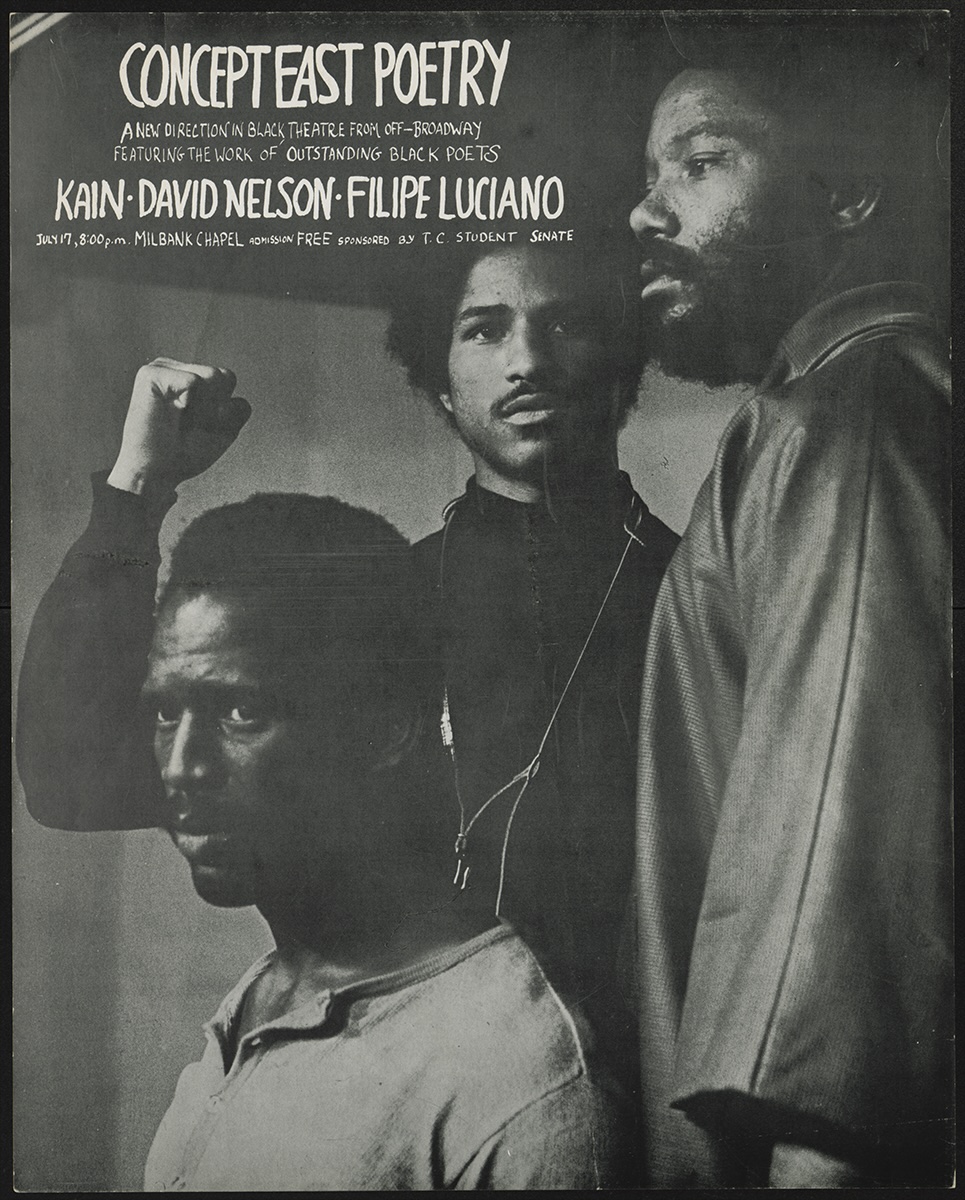
Concept East Poetry (c. 1969), Designer Unknown
Image: National Museum of African American History and Culture
Haizlip used Soul! to provide exposure to new and oftentimes unknown talent. For example, during one of his first evenings as host, Haizlip introduced The Last Poets, a revolutionary poetry collective. Through their raw and unfiltered verse, they addressed and evoked the violence inflicted on Black Americans.
In season 1 of the show, Haizlip also interviewed Georgia Jackson, the mother of slain Soledad Brother and political activist George Jackson. Her contributions served to further humanize her son, and provided an intergenerational perspective on the continuing legacy of the Black power movement.
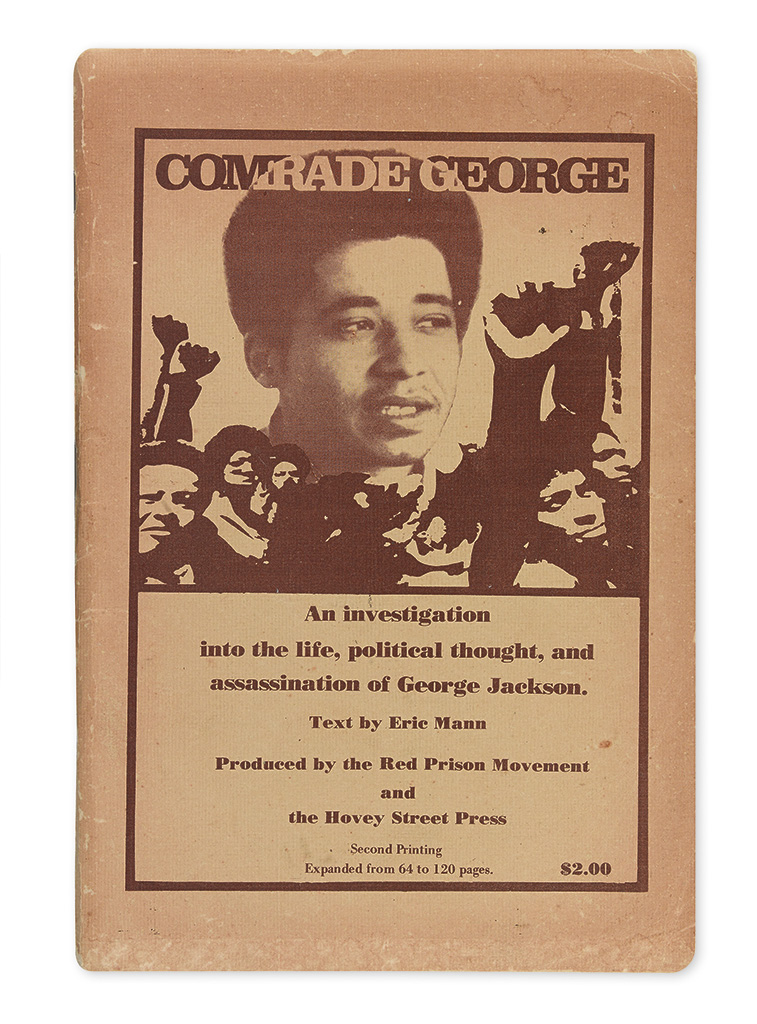
Comrade George (1972), Designer Unknown
Image: Swann Auction Galleries
Soul! balanced politics with joy, providing a platform for aspiring performers like Black Ivory, the soul trio from Harlem, and Ashford & Simpson, the now-legendary songwriters and performers. During the season 4 premiere in 1971, an episode entitled “Salute to Black Women” featured poets Nikki Giovanni and Sonia Sanchez as well as dancer and choreographer Carmen de Lavallade. It was important for the program to spotlight distinguished Black women, not least because most of the production staff were female, a rare arrangement at the time.
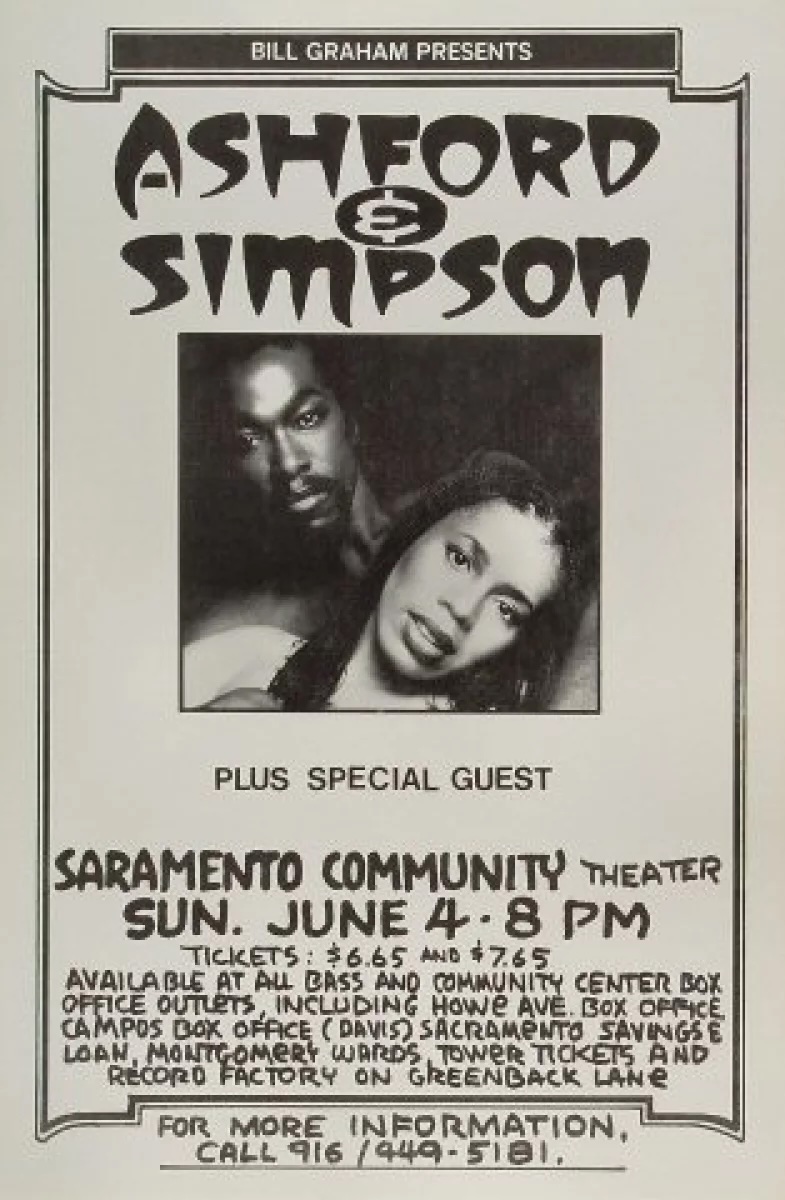
Ashford & Simpson (1978), Randy Tuten
Image: Wolfgang’s Vault
Sadly, despite public pressure to keep it on the air, the network canceled Soul! and the last episode was broadcast on March 7, 1973. In 2018, a documentary created by Haizlip’s niece, Melissa Haizlip, titled Mr. Soul! chronicled the importance of Ellis Haizlip’s work on the show and its content while capturing the spirit and life of a television program that influenced a generation.


